Achieving optimal muscle recovery is essential for athletes and fitness enthusiasts alike. Whether you’re a seasoned athlete pushing your limits or someone new to the world of fitness, incorporating muscle recovery supplements into your post-workout routine can enhance recovery, reduce muscle soreness, and support overall performance. In this comprehensive guide, we’ll explore the best muscle recovery supplements available, detailing their benefits, usage, and considerations for integrating them into your regimen. Let’s get started.
Whey Protein
Whey protein is one of the most popular and effective muscle recovery supplements available. Derived from milk during the cheese-making process, whey protein is rich in essential amino acids, particularly leucine, which plays a crucial role in muscle protein synthesis.

Benefits
Whey protein is quickly digested and absorbed by the body, making it an ideal post-workout supplement for providing amino acids to muscles when they need it most. In addition, whey protein supplies the building blocks necessary for muscle repair and growth, helping to optimize recovery after intense exercise. Whey protein supplements are available in powder form, making them convenient and easy to consume post-workout.
Also Read: 9 Best Supplements for Muscle Growth [Most Effective!]
Usage
Consume a whey protein shake within 30 minutes to an hour after your workout to maximize muscle recovery and protein synthesis. Aim for a serving size containing approximately 20-30 grams of whey protein, depending on your individual protein needs and exercise intensity.
Considerations
Whey protein is derived from milk, so individuals with lactose intolerance or dairy allergies may need to opt for lactose-free or plant-based protein alternatives. Choose high-quality whey protein supplements from reputable brands to ensure purity and efficacy.
Branched-Chain Amino Acids (BCAAs)
BCAAs are a group of essential amino acids, including leucine, isoleucine, and valine, that play a critical role in muscle protein synthesis and energy production during exercise. BCAA also helps to recover muscles from soreness which makes it one of the best muscle recovery supplements.
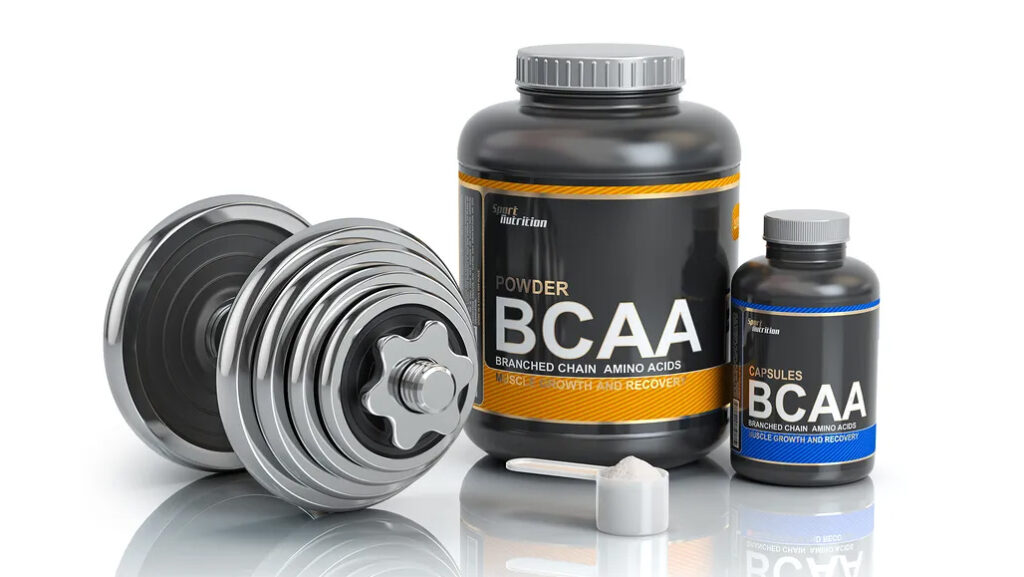
Benefits
BCAAs help reduce muscle breakdown during exercise, making them particularly beneficial for endurance athletes and individuals engaging in prolonged or high-intensity workouts. Decreased muscle soreness: BCAAs may help reduce post-exercise muscle soreness, allowing for quicker recovery and improved performance in subsequent workouts. BCAAs can be used as a source of energy during exercise, helping to fuel muscles and delay fatigue.
Usage
Take BCAA supplements before, during, or after your workout to support muscle recovery and performance. Follow the dosage instructions provided by the manufacturer, typically ranging from 5 to 10 grams of BCAAs per serving.
Considerations
While BCAAs can be beneficial for some individuals, they may not be necessary for everyone, especially if you consume an adequate amount of protein from your diet. If you’re supplementing with BCAAs, ensure you’re also consuming enough protein overall to support muscle recovery and growth.
Creatine
Creatine is a naturally occurring compound found in muscle cells, where it plays a key role in energy production during short bursts of high-intensity exercise.

Benefits
Creatine supplementation has been shown to enhance strength, power, and performance in activities such as weightlifting and sprinting. Creatine also may help accelerate muscle recovery by replenishing ATP stores and reducing exercise-induced muscle damage. Moreover, creatine draws water into muscle cells, leading to increased cell volume and a fuller, more pumped appearance.
Usage
Take creatine supplements daily, ideally in the form of creatine monohydrate, to maximize muscle creatine stores over time. Start with a loading phase of 20 grams per day split into 4 equal doses for 5-7 days, followed by a maintenance phase of 3-5 grams per day thereafter.
Considerations
Creatine supplementation may cause mild gastrointestinal discomfort in some individuals, but this can often be mitigated by spreading out doses throughout the day or consuming creatine with food. Ensure you’re adequately hydrated when supplementing with creatine, as it can draw water into muscle cells and may increase the risk of dehydration if not consumed with sufficient fluids.
Beta-Alanine
Beta-alanine is a non-essential amino acid that joins with histidine to form carnosine, a dipeptide found in high concentrations in skeletal muscle.

Benefits
Beta-alanine supplementation has been shown to increase muscle carnosine levels, which can improve exercise performance during high-intensity, anaerobic activities like weightlifting and sprinting. By buffering acid build-up in muscle tissue, beta-alanine may help delay the onset of muscle fatigue, allowing you to train harder and longer before reaching exhaustion. Beta-alanine supplementation also supports muscle recovery by reducing exercise-induced oxidative stress and muscle damage. Thus, it’s another one of the most effective muscle recovery supplements.
Usage
Take beta-alanine supplements daily to maximize muscle carnosine levels over time. Start with a loading phase of 4-6 grams per day split into smaller doses for 2-4 weeks, followed by a maintenance phase of 2-3 grams per day thereafter.
Considerations
Beta-alanine supplementation may cause a harmless side effect known as paresthesia, characterized by a tingling sensation in the skin, particularly in the face and hands. This sensation is temporary and typically subsides within 30-60 minutes after consumption. Some individuals may experience gastrointestinal discomfort when taking beta-alanine supplements, but this can often be minimized by dividing doses throughout the day or taking beta-alanine with food.
L-Glutamine
L-glutamine is a conditionally essential amino acid that plays a crucial role in protein synthesis, immune function, and gut health.
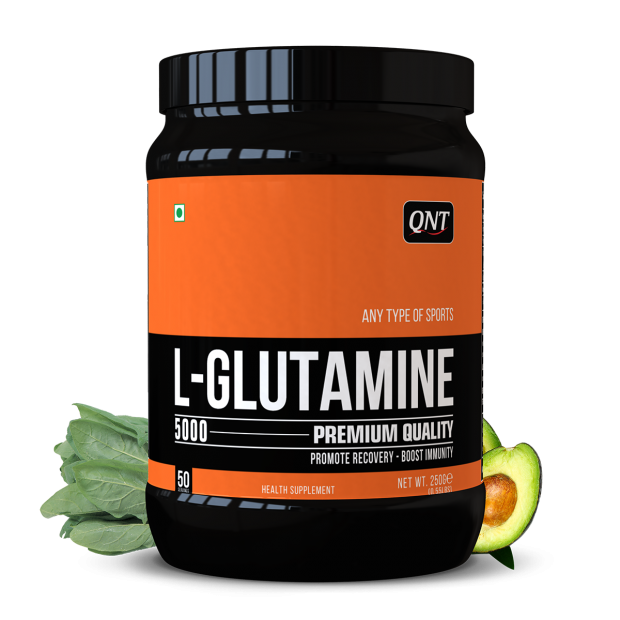
Benefits
L-glutamine supplementation supports muscle recovery by replenishing intracellular glutamine levels depleted during intense exercise. Furthermore, glutamine is essential for immune cell function, and supplementation may help reduce the risk of infections and illness, especially during periods of intense training or competition. Glutamine is a primary fuel source for intestinal cells and may help maintain the integrity of the intestinal barrier, reducing the risk of leaky gut and gastrointestinal issues associated with intense exercise.
Usage
Take L-glutamine supplements daily, ideally in divided doses throughout the day to maximize absorption and utilization. Start with a dosage of 5-10 grams per day, increasing as needed based on individual response and training volume.
Considerations
While L-glutamine supplementation may be beneficial for some individuals, it’s important to prioritize dietary sources of glutamine, including protein-rich foods like meat, fish, dairy, and legumes. If you’re considering L-glutamine supplementation, consult with a healthcare professional to determine the appropriate dosage and usage based on your individual needs and circumstances.
Omega-3 Fatty Acids
Omega-3 fatty acids are essential fats found in fatty fish, flaxseeds, chia seeds, and walnuts, among other sources. They play a crucial role in reducing inflammation, supporting cardiovascular health, and promoting muscle recovery.
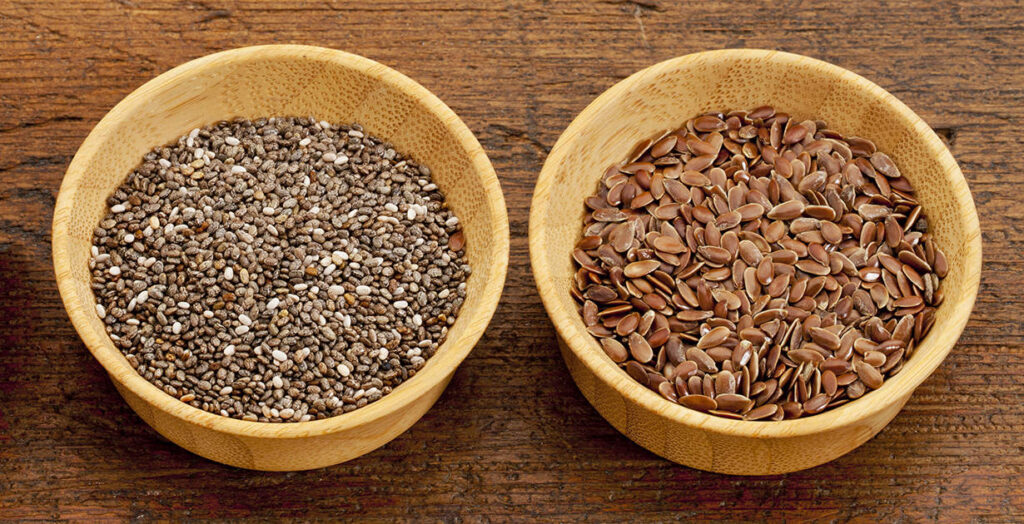
Benefits
Omega-3 fatty acids have anti-inflammatory properties that may help reduce exercise-induced inflammation and muscle soreness, facilitating faster recovery between workouts. Additionally, Omega-3 fatty acids support joint health and mobility, reducing the risk of injury and improving overall athletic performance. Not only Omega-3 fatty acids are proven as one of the best muscle recovery supplements but have been shown to support heart health by lowering blood pressure, reducing triglyceride levels, and improving cholesterol profiles.
Usage
Incorporate omega-3-rich foods into your diet regularly, including fatty fish like salmon, mackerel, and sardines, as well as plant-based sources like flaxseeds, chia seeds, and walnuts. Consider supplementing with a high-quality fish oil or algae oil supplement to ensure adequate intake of omega-3 fatty acids, especially if you don’t consume fish regularly.
Considerations
Choose omega-3 supplements that have been tested for purity and quality to ensure they’re free from contaminants like heavy metals and toxins. Consult with a healthcare professional before starting omega-3 supplementation, especially if you have a history of cardiovascular disease, diabetes, or other health conditions.
Tart Cherry Juice
Tart cherry juice is a natural beverage made from the juice of tart cherries, which are rich in antioxidants and anti-inflammatory compounds.

Benefits
Reduced muscle soreness: Tart cherry juice has been shown to reduce muscle soreness and inflammation after intense exercise, potentially enhancing recovery and performance. Moreover, tart cherry juice contains natural melatonin, a hormone that regulates sleep-wake cycles, and consuming it may help improve sleep quality and duration, which is essential for optimal recovery. Lastly, tart cherries are rich in antioxidants, including anthocyanins and flavonoids, which help neutralize free radicals and protect against oxidative stress associated with intense exercise. Thus, it’s undoubtedly one of the most useful muscle recovery supplements.
Usage
Drink tart cherry juice daily, particularly after intense workouts or periods of heavy training, to support muscle recovery and reduce post-exercise soreness. Aim for approximately 8-12 ounces of tart cherry juice per day, either consumed on its own or mixed with water or another beverage of your choice.
Considerations
Choose unsweetened tart cherry juice whenever possible to minimize added sugars and maximize the antioxidant content. While tart cherry juice can be a beneficial addition to your post-workout routine, it’s essential to consume it as part of a balanced diet rich in other nutrient-dense foods.
Magnesium
Magnesium is an essential mineral involved in over 300 biochemical reactions in the body, including muscle contraction, energy production, and protein synthesis.
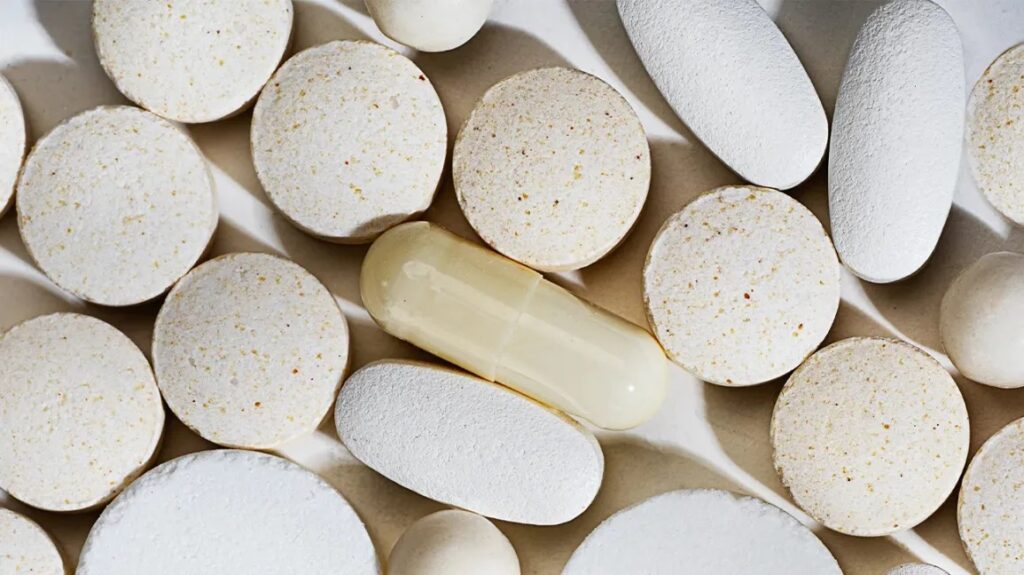
Benefits
Magnesium plays a crucial role in muscle relaxation and function, helping to prevent cramps, spasms, and muscle tightness, especially after intense exercise. Not only that but also magnesium is involved in the production and utilization of ATP, the primary energy currency of cells, and adequate magnesium levels are essential for optimal energy metabolism and performance. Last but not least, magnesium has calming and anti-anxiety properties, and supplementation may help reduce stress levels and promote relaxation, supporting overall recovery and well-being. For this reason, it’s a proven fact that magnesium supplements are also some of the most utile muscle recovery supplements.
Usage
Consume magnesium-rich foods regularly, including leafy green vegetables, nuts, seeds, whole grains, and legumes, to ensure adequate intake of this essential mineral. Consider supplementing with magnesium if you’re unable to meet your needs through diet alone or if you have a known deficiency confirmed by blood testing.
Considerations
Choose a high-quality magnesium supplement that’s well-absorbed and bioavailable, such as magnesium glycinate, citrate, or malate. Avoid consuming excessive amounts of magnesium, as it can cause gastrointestinal discomfort and diarrhea, especially with certain forms of magnesium supplements.
Protein Bars and Shakes
Protein bars and shakes are convenient and portable options for boosting protein intake and supporting muscle recovery on the go.

Benefits
Protein bars and shakes are convenient options for post-workout nutrition, providing a quick and easy source of protein and other essential nutrients. Moreover, they are pre-portioned, making it easy to track and control your protein intake, especially if you’re on the go or don’t have access to whole foods. Protein bars and shakes come in a wide range of flavors and formulations, allowing you to find options that suit your taste preferences and dietary needs.
Usage
Choose protein bars and shakes with a balanced macronutrient profile, including a combination of protein, carbohydrates, and healthy fats, to support recovery and fuel performance. Use protein bars and shakes as convenient post-workout snacks or meal replacements when whole foods aren’t readily available or practical.
Considerations
Read the ingredient list and nutrition label carefully when selecting protein bars and shakes, and choose options with minimal added sugars, artificial ingredients, and fillers. While protein bars and shakes can be convenient options for post-workout nutrition, they shouldn’t replace whole, nutrient-dense foods as the foundation of your diet.
Electrolyte Supplements
Electrolyte supplements provide essential minerals like sodium, potassium, magnesium, and calcium, which are lost through sweat during exercise and need to be replenished for optimal hydration, muscle recovery and function.
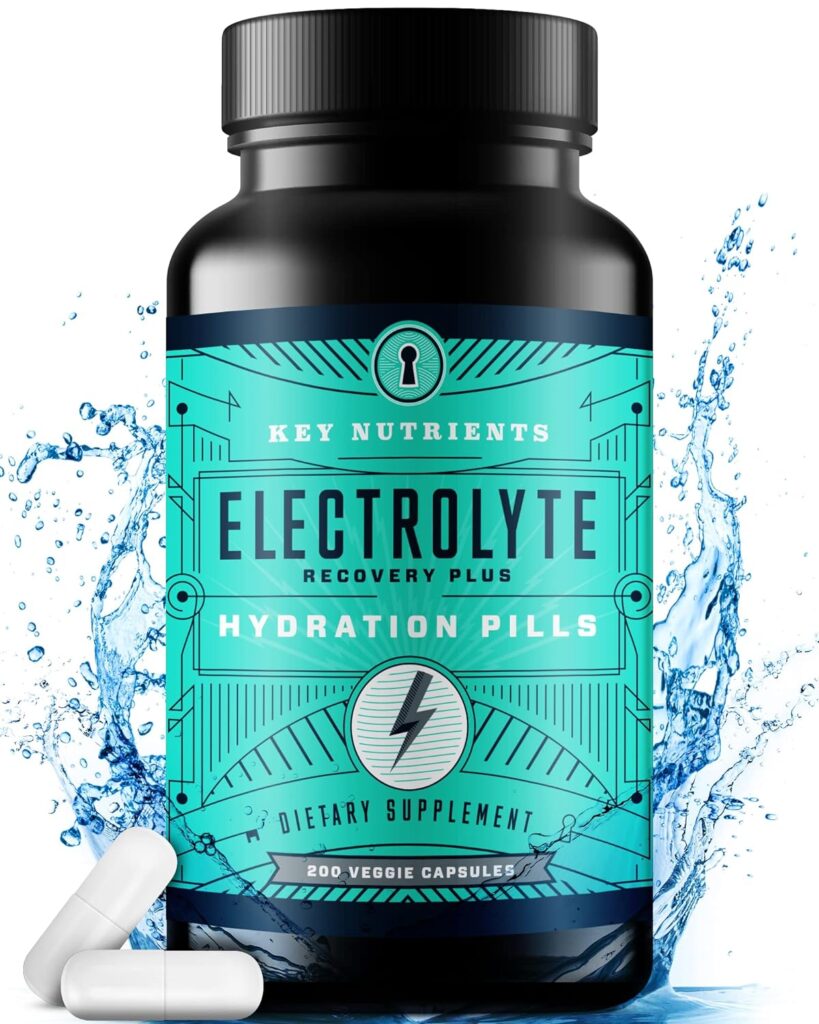
Benefits
Electrolyte supplements help maintain proper fluid balance in the body, preventing dehydration and promoting optimal hydration status during and after exercise as electrolytes play a crucial role in muscle contraction, nerve function, and cellular communication, and adequate intake is essential for optimal athletic performance and recovery. Electrolyte imbalances can lead to muscle cramps and spasms, especially during prolonged or intense exercise, and supplementation may help prevent cramping and maintain muscle function.
Usage
Take electrolyte supplements before, during, or after exercise to support hydration and replenish electrolyte stores lost through sweat. Choose electrolyte supplements that contain a balanced blend of sodium, potassium, magnesium, and other essential minerals to support overall hydration and muscle function.
Considerations
Electrolyte needs vary depending on factors like exercise intensity, duration, and environmental conditions, so adjust your supplementation accordingly to meet your individual needs. Avoid excessive electrolyte supplementation, as consuming too many electrolytes can lead to imbalances and potentially harmful side effects like hypernatremia or hyperkalemia.
The Bottom Line
Incorporating these 10 best muscle recovery supplements into your post-workout regimen can enhance recovery, reduce muscle soreness, and support overall performance. From whey protein and BCAAs to creatine, beta-alanine, and omega-3 fatty acids, there are several options available to suit your individual needs and goals as we already discussed above. Keep in mind that when selecting muscle recovery supplements, it’s essential to consider factors like effectiveness, safety, convenience, and personal preferences. Choose high-quality supplements from reputable brands, and consult with a healthcare professional or registered dietitian if you have any questions or concerns about supplementation.
Also remember that while supplements can complement a balanced diet and exercise routine, they should not replace whole, nutrient-dense foods as the foundation of your nutrition plan. Focus on consuming a variety of whole foods, including lean proteins, fruits, vegetables, whole grains, and healthy fats, to support optimal health, performance, and recovery. By incorporating these muscle recovery supplements strategically into your post-workout routine and pairing them with a balanced diet and consistent training, you can get optimum recovery, enhance performance, and achieve your fitness goals more effectively. Hopefully, you found this article helpful enough. If you really did then let us know your valuable thoughts in the comment section down below. Thanks for visiting and appreciating our work.
